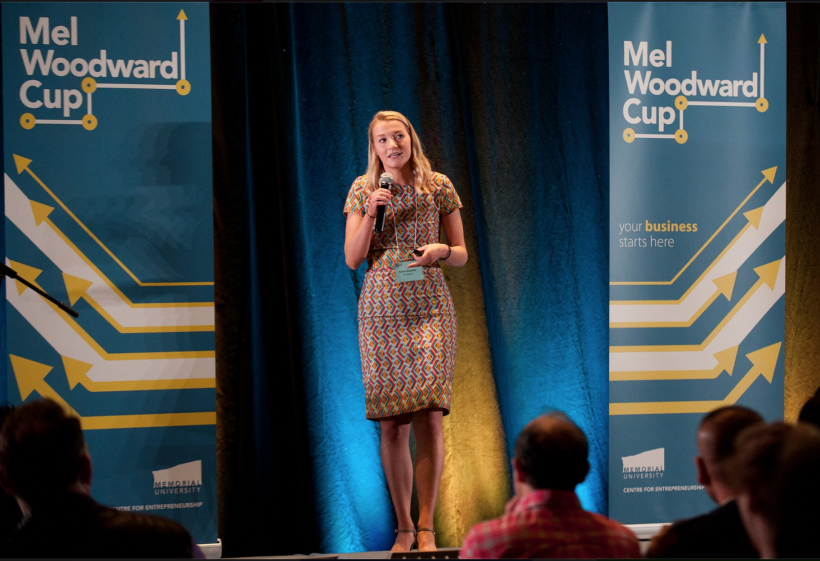After Anna Gosine, a fourth-year mechanical engineering student at the Memorial University of Newfoundland, spent four months in Malawi. she returned with a better understanding of the world and a new idea to improve health in developing countries.
“When I came back, I wanted to find a way that I could combine my engineering abilities with designing a product that someday could help families like mine in Malawi,” said Gosine in an interview.
Gosine is designing a medical device called VitalMIST, a nasal atomizer that vaporizes liquid medicine, so it can be administered through a patient's nasal cavity as a fine mist.
It can be used to treat seizures, which are a common symptom of malaria, a highly infectious disease that affects millions of people in developing countries every year.
“You’d use it for things that you’d normally use a needle for,” said Gosine.
These kinds of nasal sprays are already on the market and have a wide range of applications, but Gosine said there are a lot of inconsistencies and they don’t always function properly.
“The product that currently exists, which is our main competitor, had to recall over 3 million units a few years ago because they weren’t functioning properly,” she said.
Gosine and her team have developed a 3D-printed prototype of their nozzle and are currently running computer simulations that will improve their current model, which they hope to have market-ready by next summer.
Gosine has received $40,000 in non-repayable funding since launching VitalMIST in early 2018. She received $30,000 from Bounce Health Innovation’s Embryo Grant and $10,000 at the 2018 Mel Woodward Cup, a business pitch competition at MUN.
VitalMIST was also the only Atlantic Canadian company to attend Communitech’s Fierce Founders Bootcamp in Kitchener Ont., this summer.
To speed up VitalMIST’s get-to-market process, Gosine partnered with another Newfoundland company called IgE Health, which is developing an all-natural moisturizer for eczema, that could also help those suffering from chronic nosebleeds when administered via nasal spray.
This avenue wouldn’t require FDA or Health Canada approval in order to get to market, which means Gosine could start manufacturing the nozzles before 2020.
VitalMIST was founded to improve health care in developing countries, but Gosine wants to hit North American markets first so the company can build up enough capital to allow it to distribute the nasal device in developing countries for little to no cost.
“We’re hitting North America first and working to get a profit here so we can ensure that we can then work with distributors and manufacturers in developing countries, and basically give it to them for free,” she said.
Once the VitalMIST nozzle is on the market, Gosine wants to continue to engineer new medical devices.
“We started this so we can design more accessible health care products. We don't want to become a company that manufactures just the one product,” she said.










